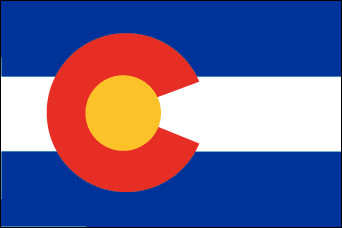 By John Husband
By John Husband
In the absence of actual time records, time spent by employees donning and doffing protective gear may be established by representative evidence in order to establish the employer’s liability for unpaid overtime pay in a class action lawsuit, ruled the U.S. Supreme Court today. The Court rejected the company’s argument that each employees’ wage claim varied too much to be resolved on a classwide basis. Instead, the Court upheld the class certification, sending the case back to the district court to determine how to distribute to class members the $2.9 million dollar jury award. Tyson Foods, Inc. v. Bouaphakeo, 577 U.S. ___ (2016).
Pay For Donning and Doffing Protective Gear
Under the Fair Labor Standards Act (FLSA), it is well established that employers must pay employees for time spent performing preliminary or postliminary activities that are “integral and indispensable” to their regular work. In the Tyson Foods case, over 3,300 pork processing employees sued, alleging that the company failed to pay them for time spent putting on and taking off required protective gear at the start and end of their work shifts and at meal periods. The employees argued that such time was “integral and indispensable” to their work and that when added to their weekly work hours, pushed them beyond 40 hours per week resulting in unpaid overtime.
Because Tyson Foods did not keep any time records for donning and doffing time, the employees presented representative evidence of the time spend on those activities, including employee testimony, video recordings of the donning and doffing process at the plant, and a study by an industrial relations expert, Dr. Kenneth Mericle. Dr. Mericle analyzed 744 videotaped observations to determine how long various donning and doffing activities took, concluding that employees in the kill department took an estimated 21.25 minutes per day while workers in the cut and retrim departments took an estimated 18 minutes per day. Using that data, another expert added that time to each employees’ recorded work time to determine how many hours each employee worked per week.
Tyson Foods argued that because the workers did not all wear the same protective gear, each individual plaintiff spent different amounts of time donning and doffing the gear. Therefore, Tyson Foods maintained that whether and to what extent it owed overtime pay to each individual employee was a question that could not be resolved on a class-action basis. Importantly, Tyson Foods did not attack the credibility of the employees’ expert or attempt to discredit the statistical evidence through its own expert, but instead opposed class certification on the basis that the individual variances of the time spent by each employee made the lawsuit too speculative for classwide recovery.
Employee-Specific Pay Inquiries Do Not Destroy Class Action
The Court determined that the employees’ use of Dr. Mericle’s representative study was permissible to establish hours worked in order to fill the evidentiary gap created by the employer’s failure to keep time records of the donning and doffing activities. The Court refused to define a broad-reaching rule about when statistical evidence may be used to establish classwide liability, stating instead that it would depend on the purpose for which the evidence was being introduced and the elements of the underlying action. It ruled it appropriate to rely on sample evidence when each class member could have relied on that sample to establish liability if he or she had brought an individual lawsuit. In the wage and hour context, if the sample data could permit a reasonable jury to find the number of hours worked in each employees’ individual action, the “sample is a permissible means of establishing the employees’ hours worked in a class action.”
The Court, in its 6-to-2 decision, refused to rule on the issue of how the jury’s $2.9 million award would need to be dispersed among the class members and how to prevent uninjured class members (i.e., those whose donning and doffing time did not result in overtime) from recovering any part of the award. In fact, Chief Justice Roberts, writing a separate concurring opinion, expressed his concern that the district court would not be able to devise an allocation method that would award damages only to those class members who suffered an actual injury. But, because the majority found that the allocation methodology issue was not before the Court, the case gets sent back to the trial court for that determination.
Litigation Tactics To Oppose Class Certification
The Court noted numerous litigation strategies by Tyson Foods that may have proved fatal to its case. First, Tyson Foods failed to move for a hearing to challenge the admissibility of the employees’ expert study by Dr. Mericle. A so-called Daubert hearing would have offered Tyson the chance to keep the representative sample out of the trial which may have eliminated the employees’ evidence of time spent donning and doffing protective gear.
Second, the Court noted that Tyson Foods did not attempt to discredit Dr. Mericle’s sample evidence through an expert of its own. By focusing its trial strategy only on attacking the class certification issue, the jury was left without any rebuttal to the employees’ experts.
Finally, Tyson Foods rejected splitting the jury trial into two phases, a liability phase and a damages phase. Instead, it insisted on a single proceeding in which damages would be calculated in the aggregate and by the jury. The jury came back with a $2.9 million award, which was half of what the employees’ sought, but still a significant award against Tyson Foods.
Blow To Businesses Defending Class Actions
Although the Court refrained from approving the use of representative data in all class-action cases, the Court’s decision makes it more difficult for employers to object to sample data when defending a class or collective action. Noting that representative data is not an appropriate means to overcome the absence of a common employer policy that applies to all class members, per its 2011 Wal-Mart Stores, Inc. v. Dukes decision, the Court allowed representative data to fill the evidentiary gap regarding hours worked where each employee worked in the same facility, did similar work, and was paid under the same policy.
Click here to print/email/pdf this article.


 By
By  Holland & Hart labor and employment attorneys Dora Lane and Steve Gutierrez discuss potential impacts on employers and employees of the hold on the proposed Overtime Rule. Dora Lane was interviewed on Reno’s Channel 2 News. Steve Gutierrez talked with KDVR Fox 31 in Denver.
Holland & Hart labor and employment attorneys Dora Lane and Steve Gutierrez discuss potential impacts on employers and employees of the hold on the proposed Overtime Rule. Dora Lane was interviewed on Reno’s Channel 2 News. Steve Gutierrez talked with KDVR Fox 31 in Denver.
 By
By 




